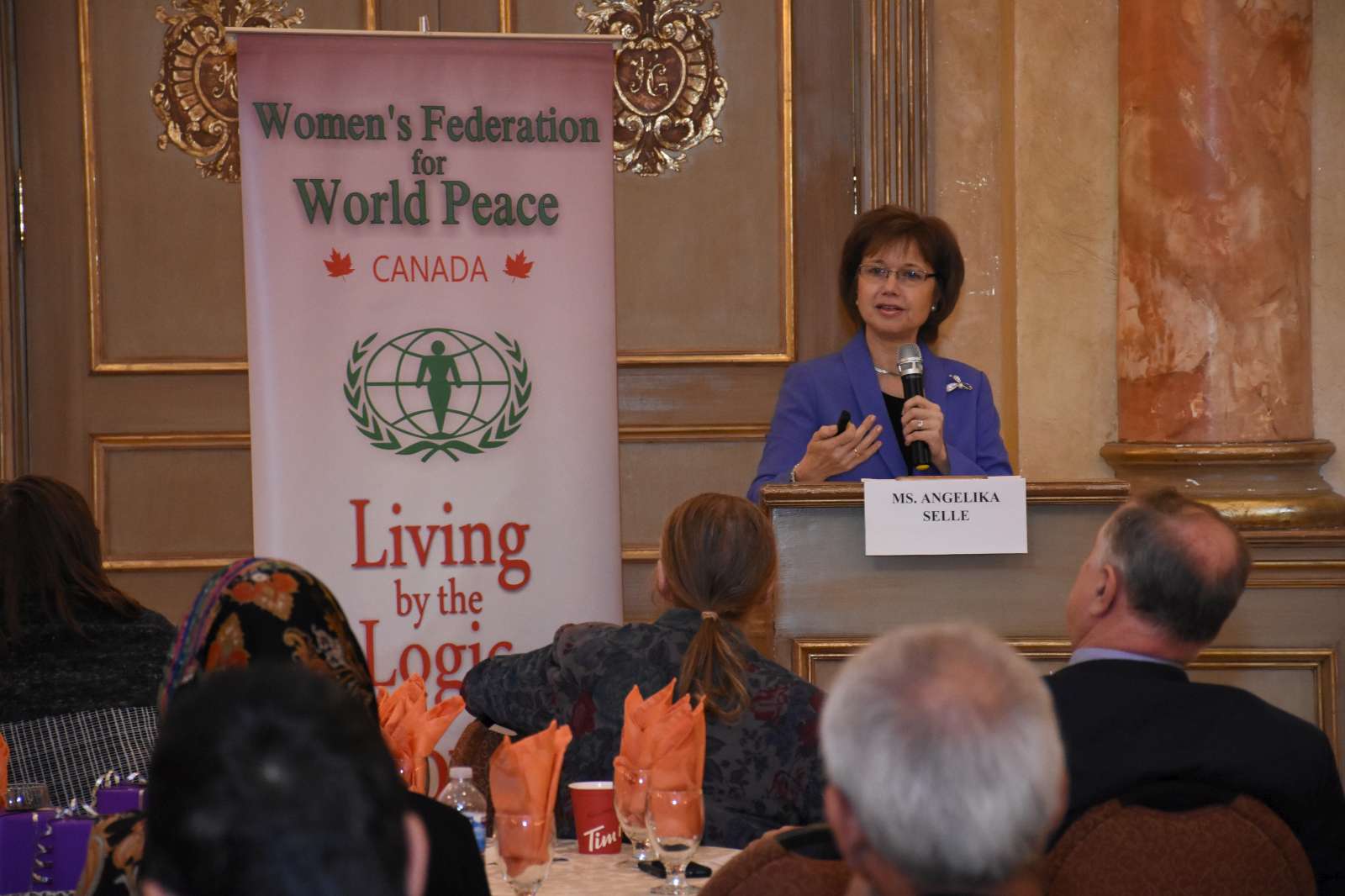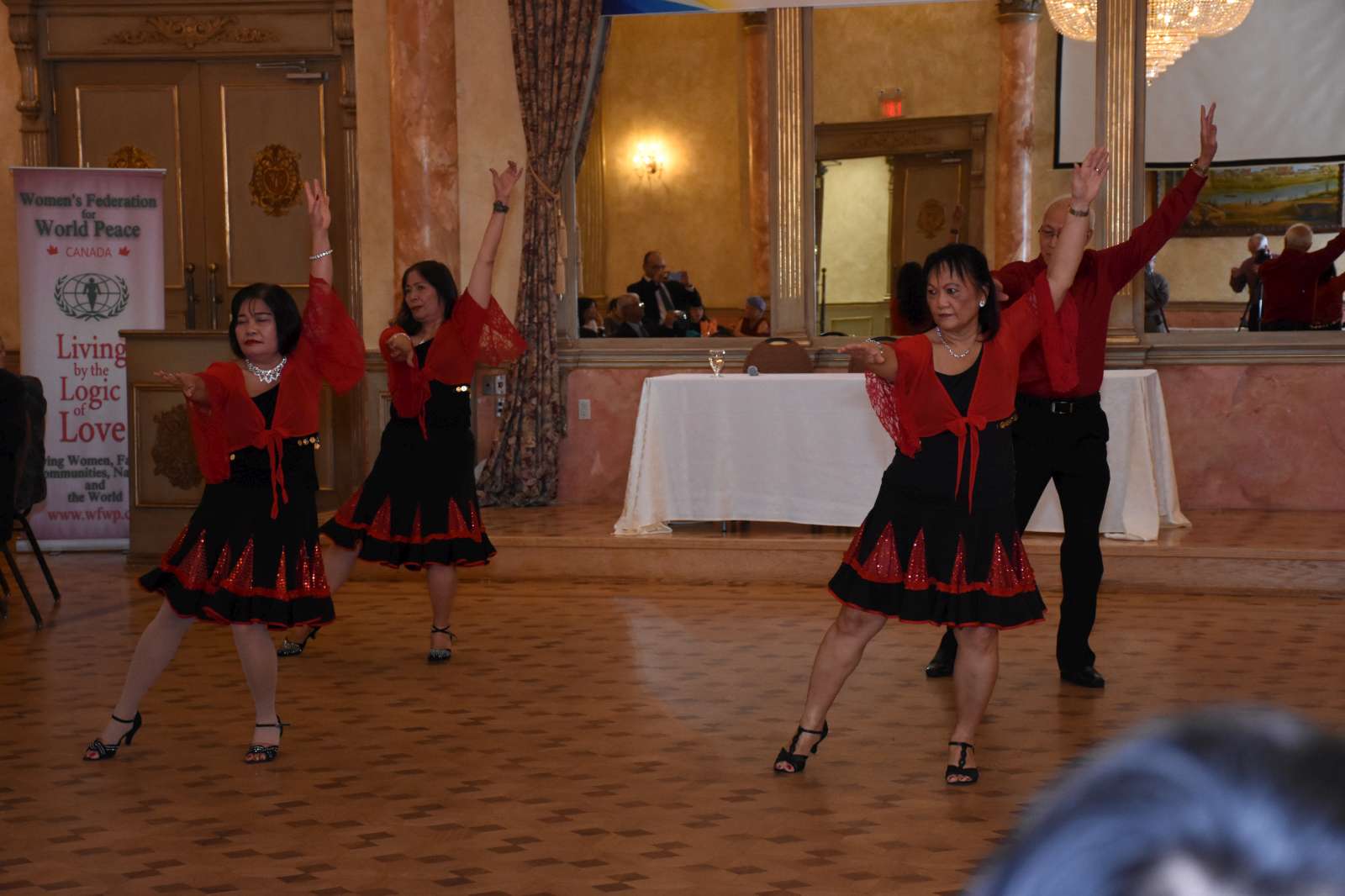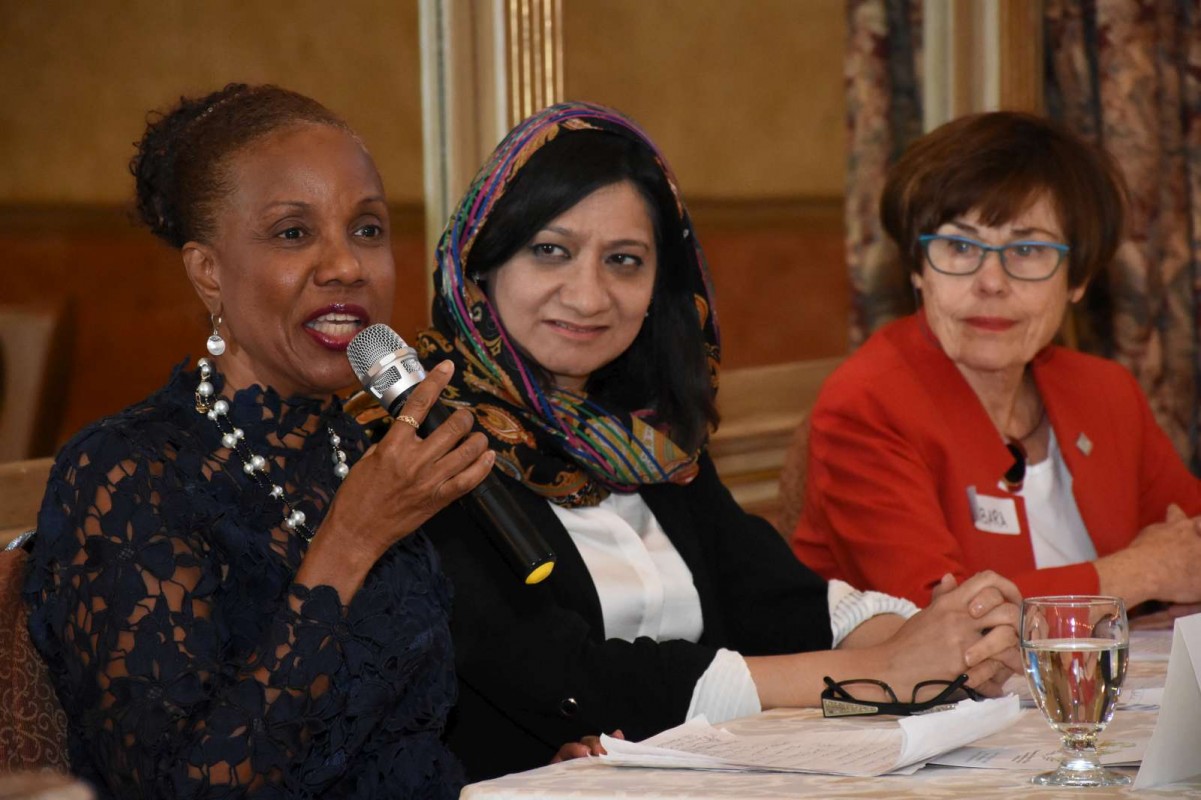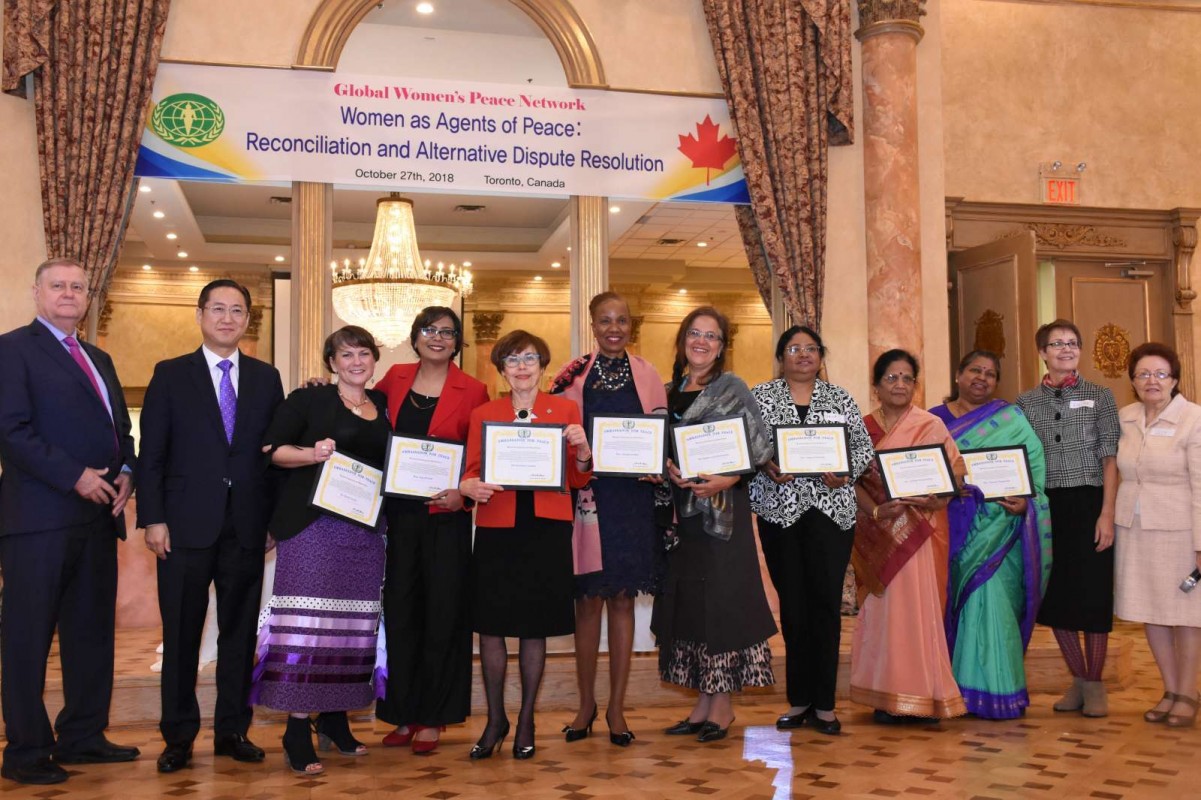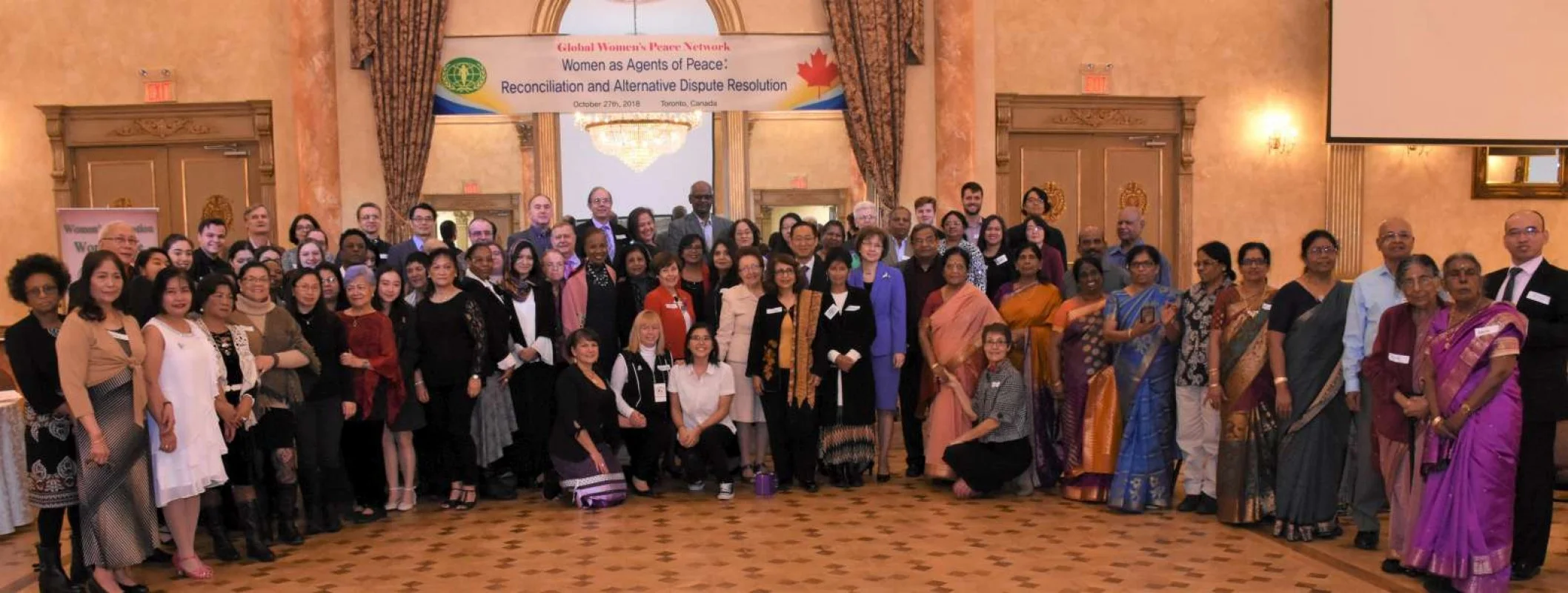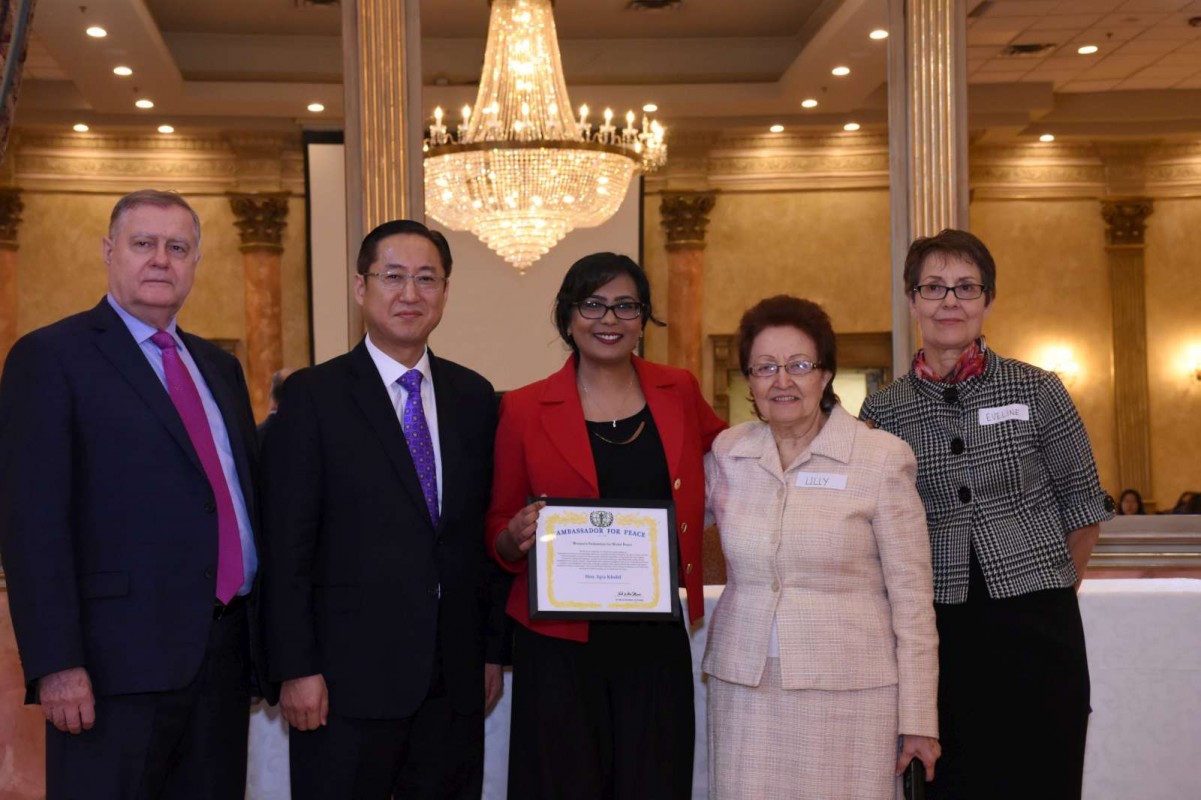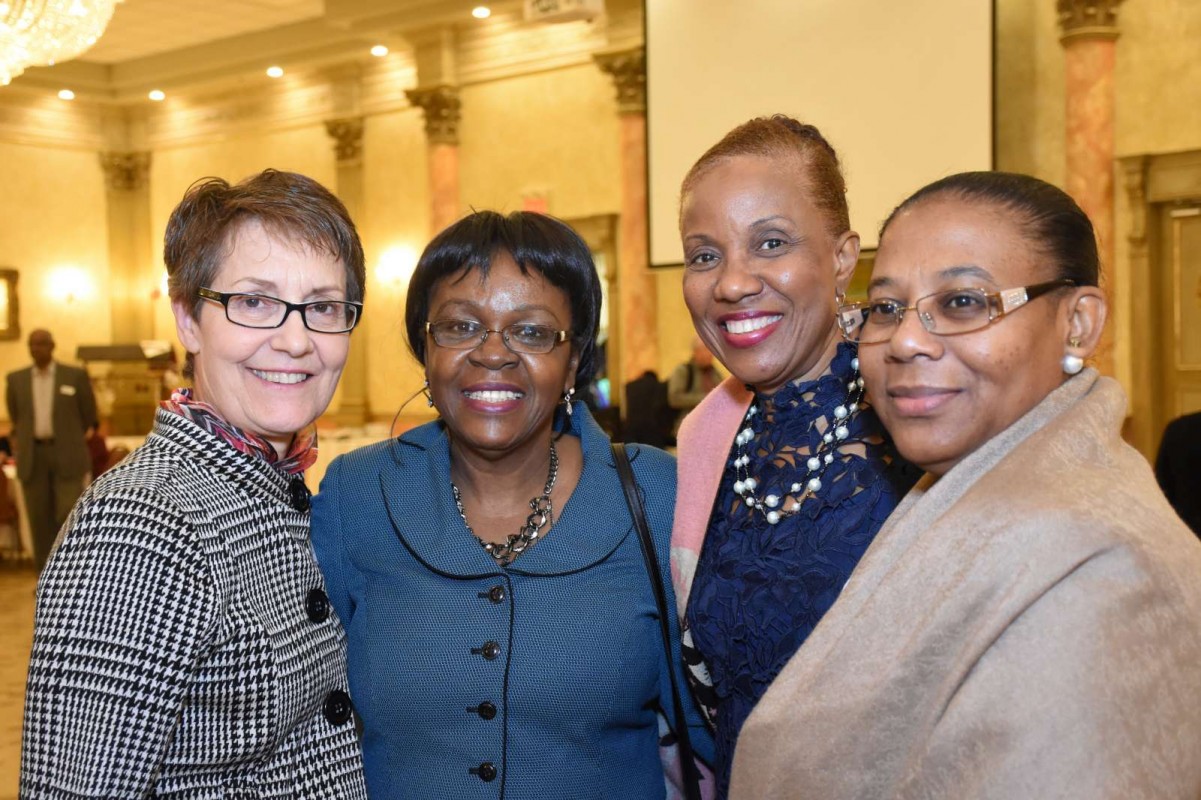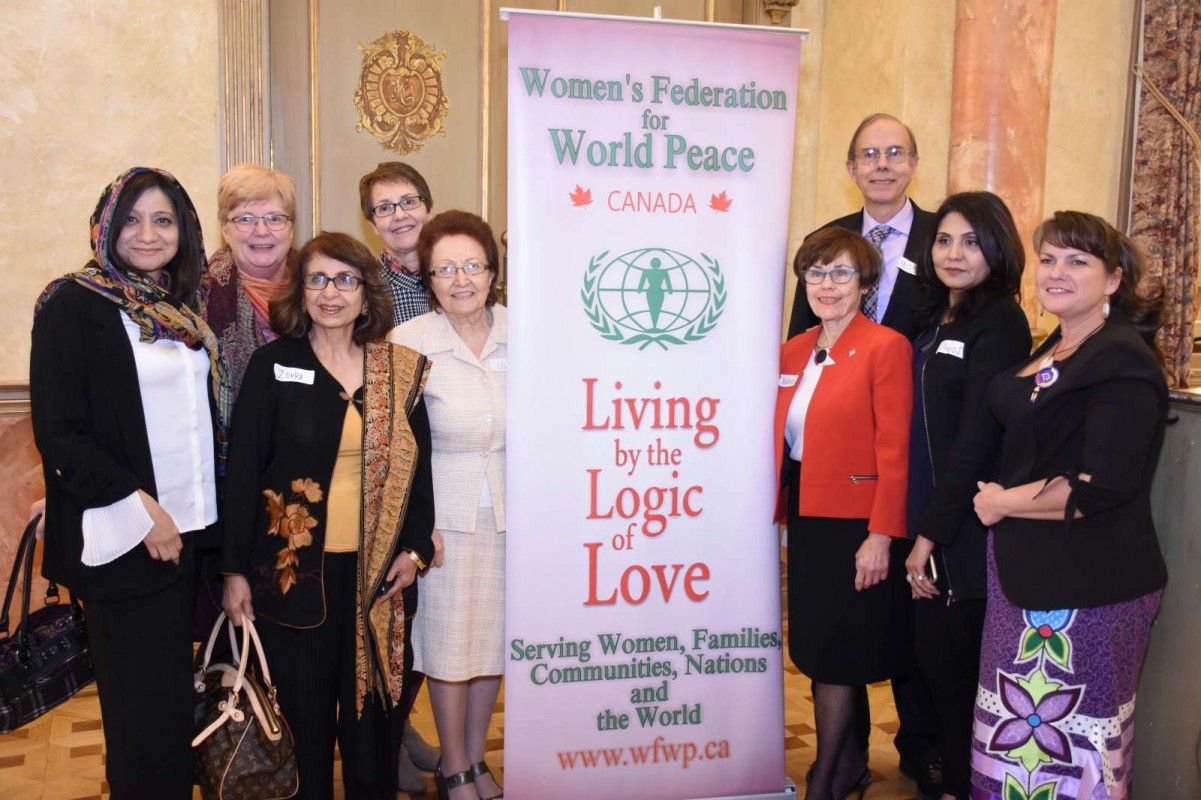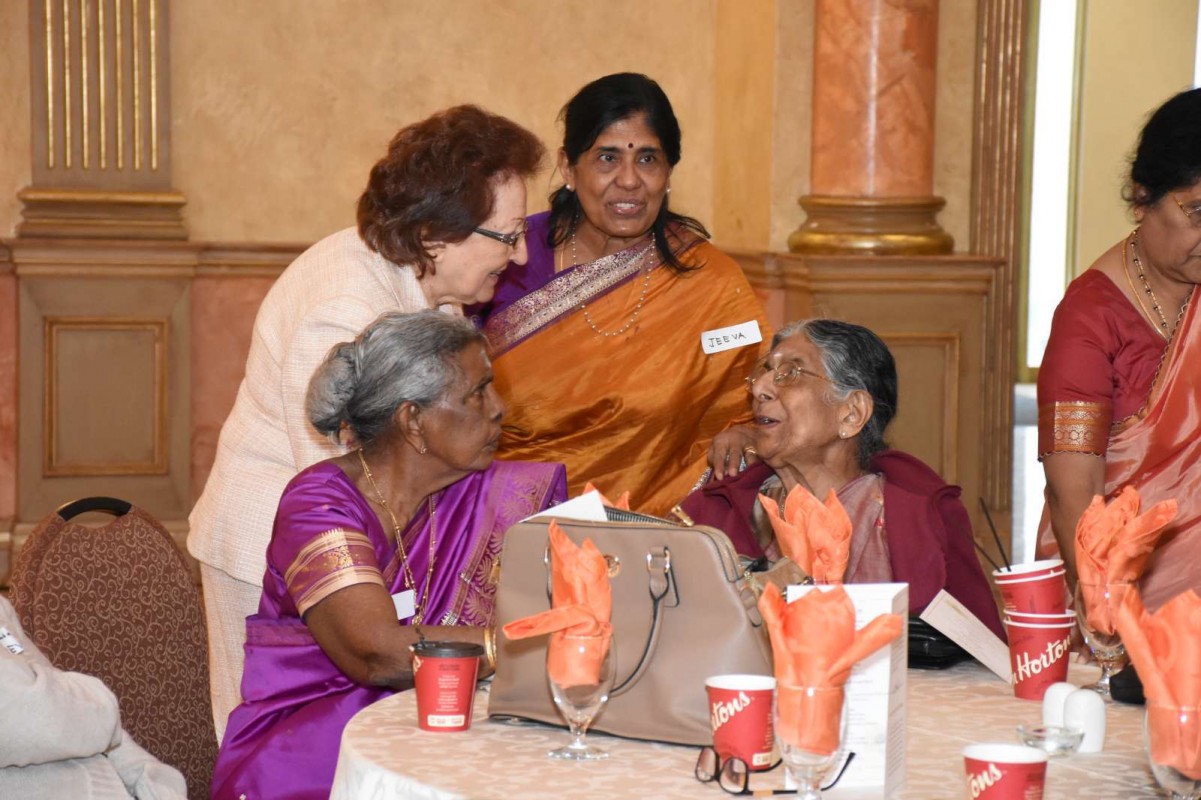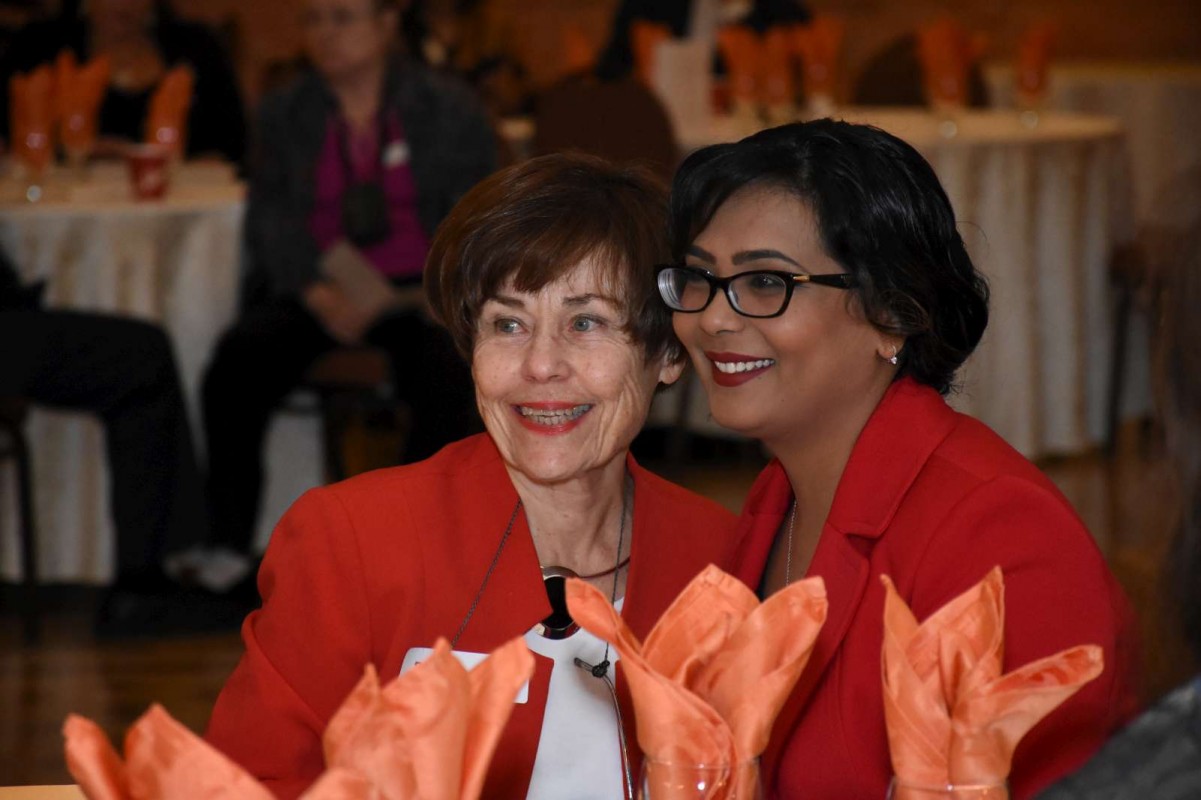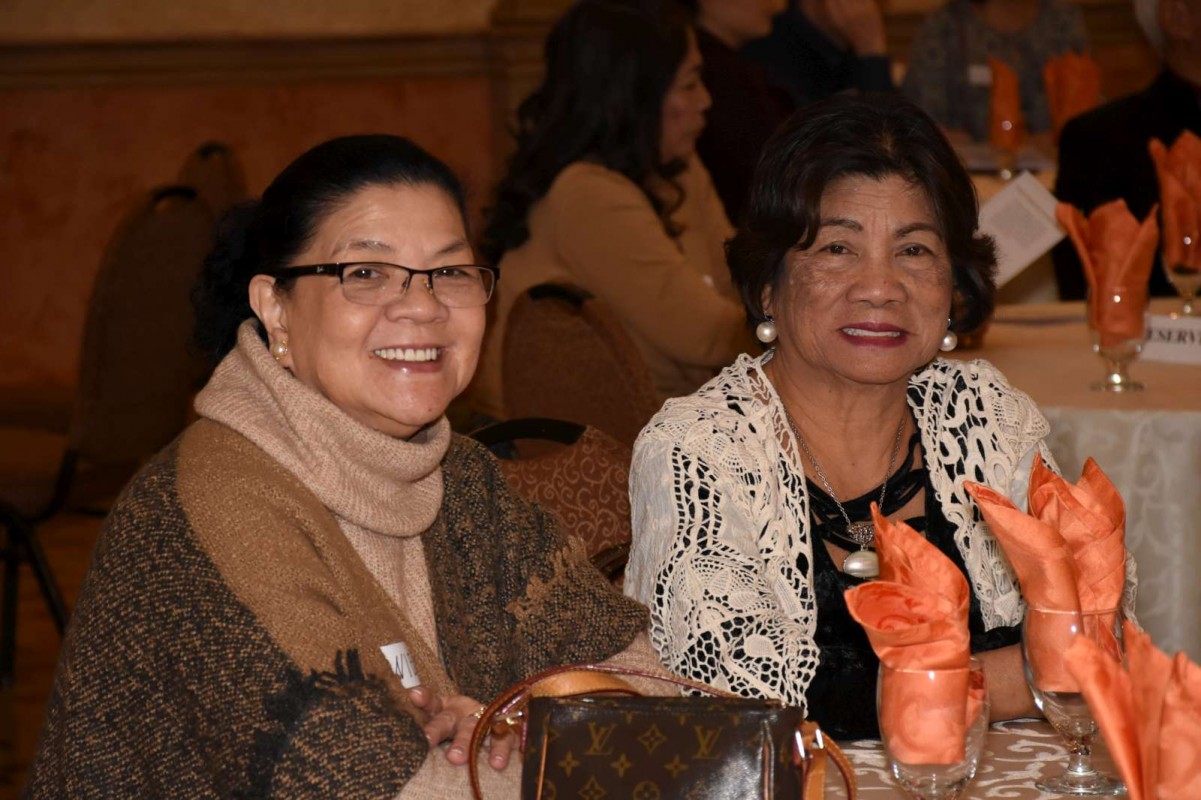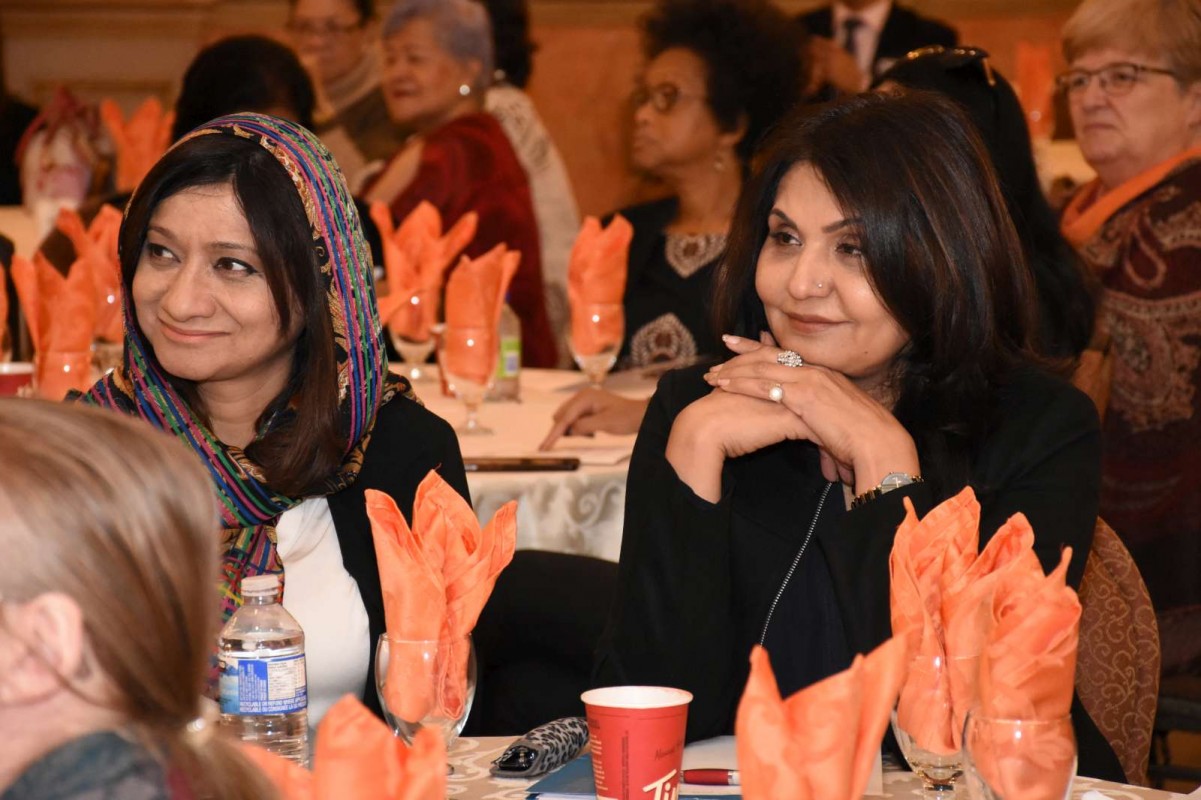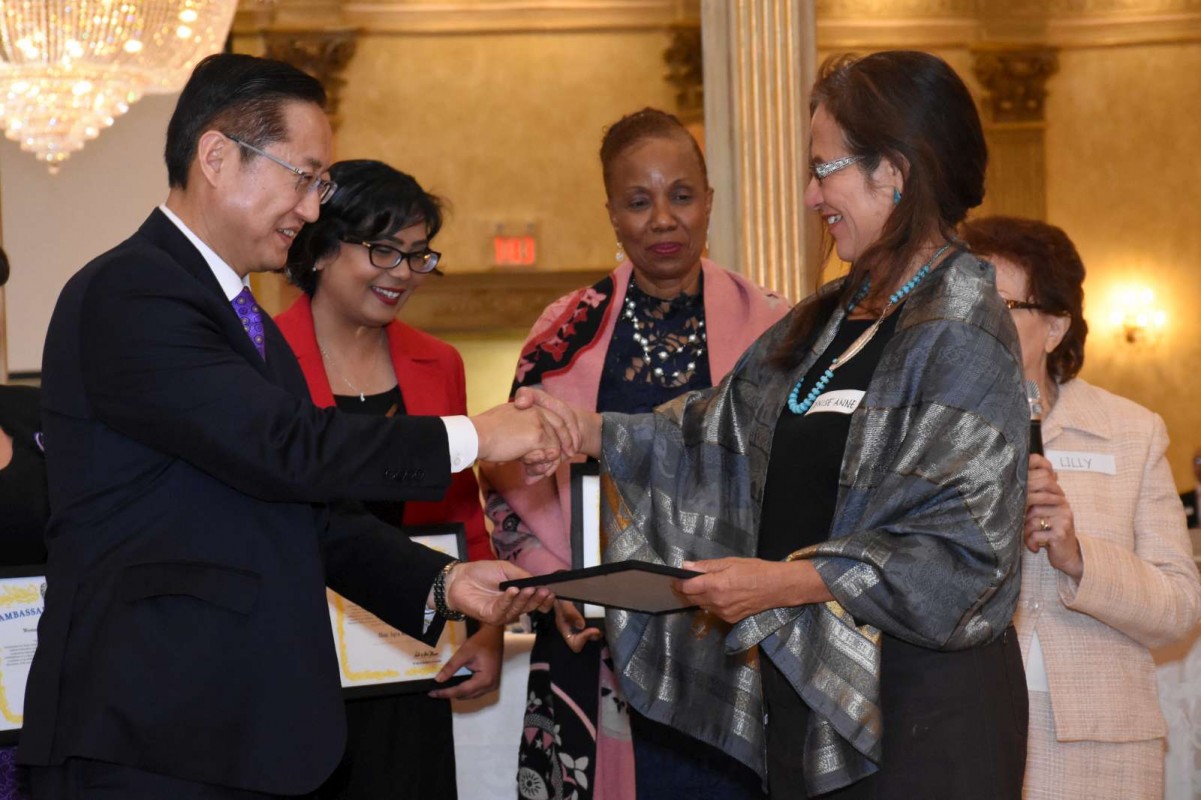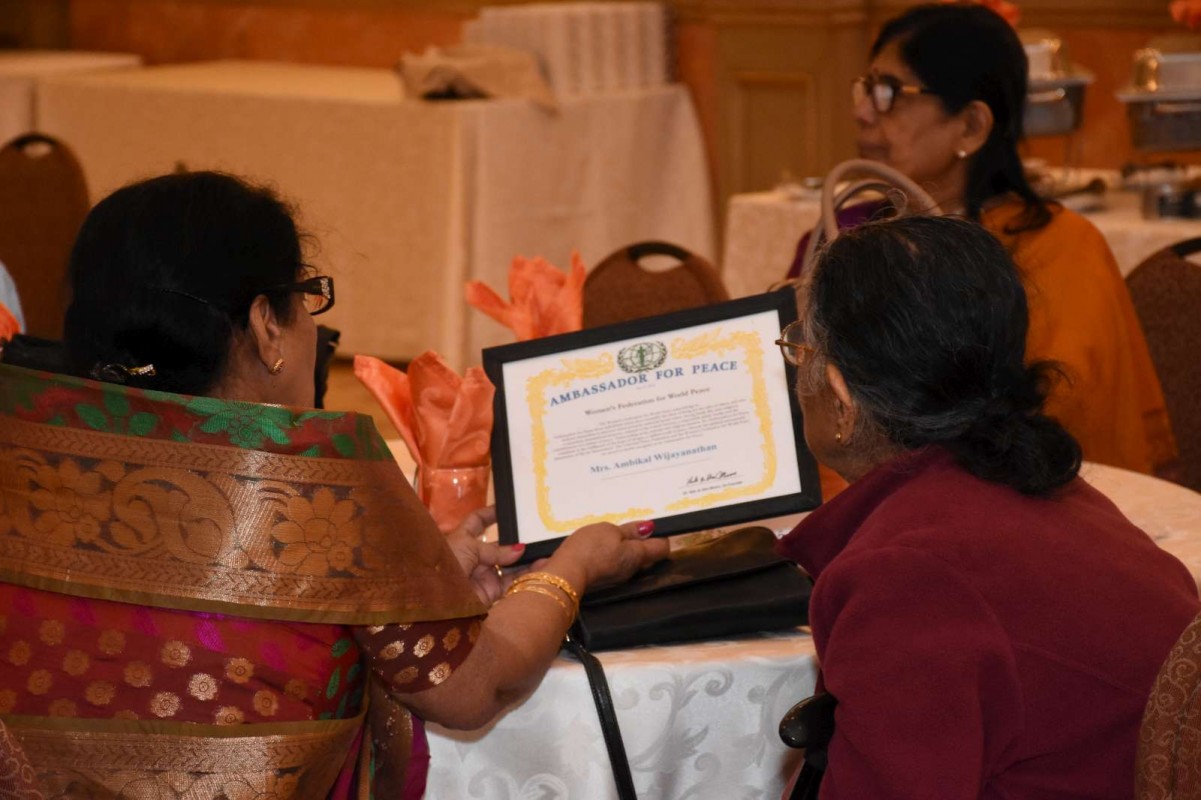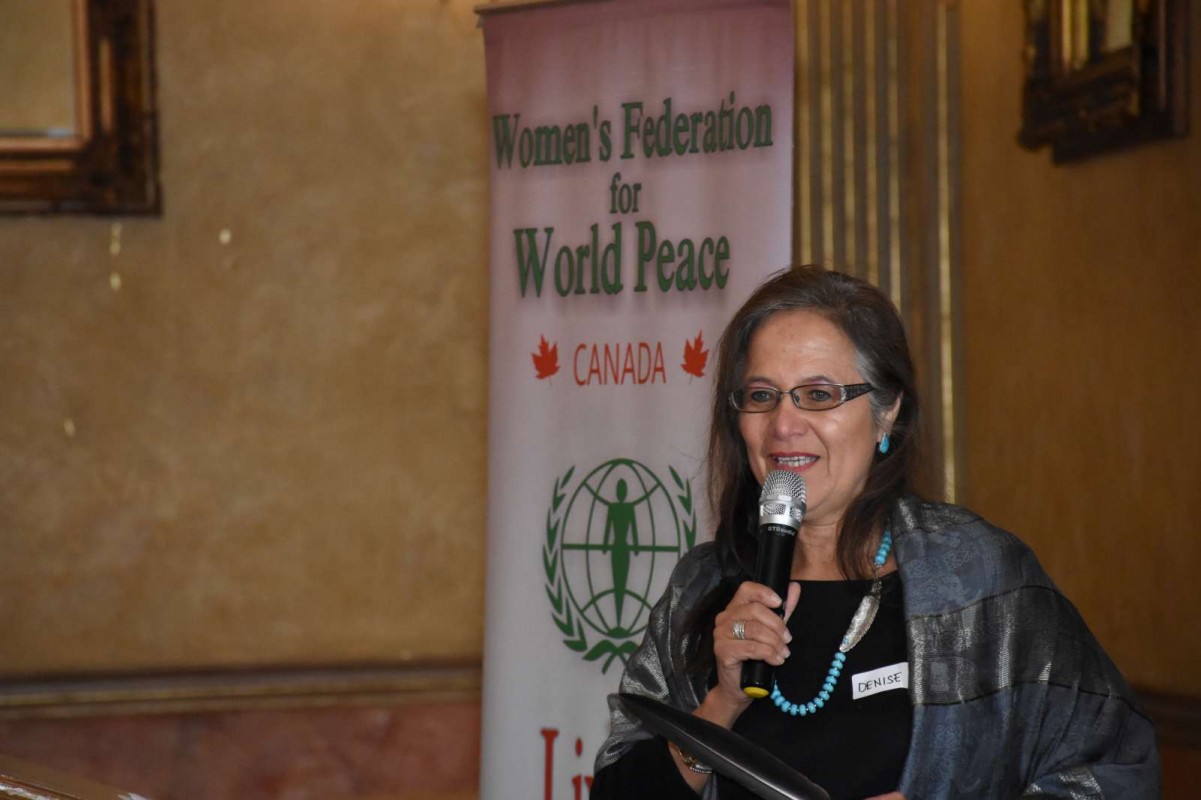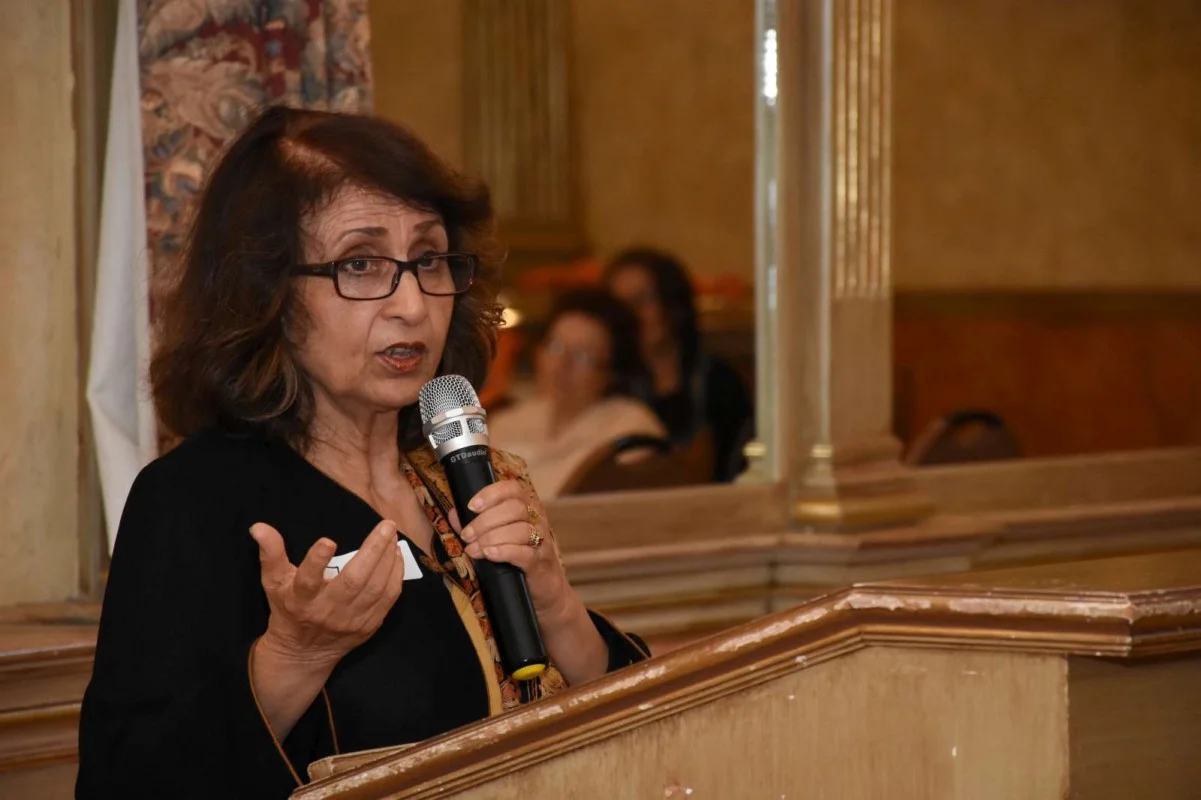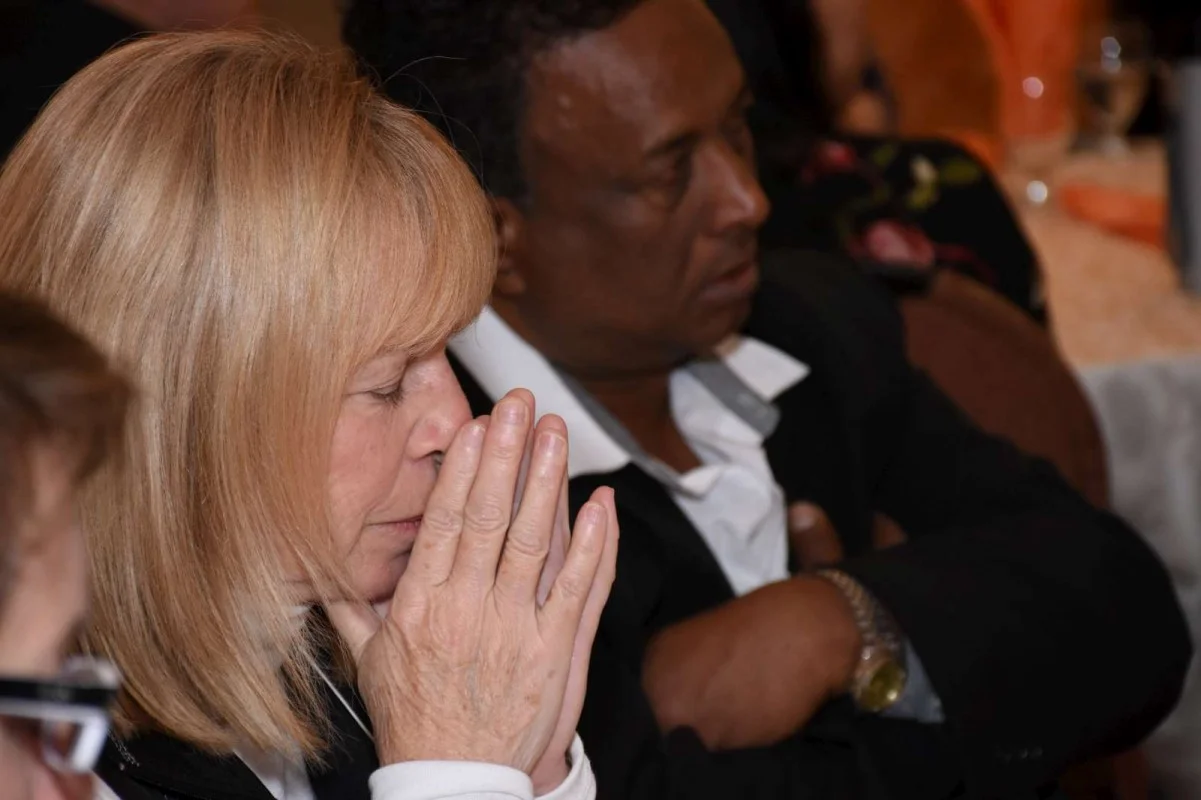WOMEN AS AGENTS OF PEACE: GLOBAL WOMEN’S PEACE NETWORK LAUNCH IN CANADA
On Saturday October 27th, 2018 in Etobicoke, Ontario, WFWP-Canada launched the Canadian chapter of the Global Women’s Peace Network. This network has already been established in several nations throughout Europe, Africa, Asia, and North and South America. It is a network of women and organizations dedicated to solving pressing social issues and securing an environment for human development. Through feminine leadership, GWPN seeks to ensure lasting peace and prosperity for generations to come.
The theme of the conference was "Women as Agents of Peace: Reconciliation and Alternative Dispute Resolution." The excellent emcee was Dr. Dawn Lavell-Harvard, director of Trent University's First Peoples House of Learning. She began by welcoming us on the land of the Mississaugas, the first nation which lived and cared for the land before colonization. This acknowledgement is now current practice and is part of the process of reconciliation taking place in Canadian society between the First Nations (Indians, Métis and Inuit) and all Canadian citizens.
Ms. Lilly Tadin, President of WFWP-Canada, opened our meeting by reminding the audience of our Founder’s unique approach to solving problems in our society and world. Power alone does not suffice, only the ‘logic of love’ can guide us towards solutions. She further emphasised the necessity of working together with men to accomplish our goals.
The main speaker, Ms. Iqra Khalid
The keynote address was given by Ms. Iqra Khalid, Member of Parliament representing Mississauga-Erin Mills. Ms. Khalid is a young, energetic lawyer dedicated to advocating for equality and fairness, whose primary objective has always been to strengthen the ties among Canadians. She shared how growing up in a Pakistani family with three brothers, her parents had the wisdom to never belittle her but made her feel equal to her siblings by saying often that they had “four sons.” She commented on the role of women in the world denoting that women understood different routes to problem-solving. They are more collaborative, willing to compromise and find ways forward. She also spoke of the need to have women present in peacekeeping missions to offer support to women suffering abuse in war zones. Her concluding statement was that no one group is entitled to human rights and peace; they belong to all and we have to work to make them a shared reality across societies and nations.
Ms. Denise-Anne Boissoneau, an indigenous scholar with a law degree from the University of Ottawa, gave the first presentation on the “Power of Reconciliation: Lessons from the Truth and Reconciliation Commission.” She spoke at length on the traditions of her ancestors to value life, love, respect, honesty, wisdom and how we are all called and share responsibility for the future. She gave some historical background on the evolution of the relationship between First Nations and the government of Canada, the impact of residential schools and the policies of child welfare agencies which have been so detrimental to native society and culture. Progress is now being made, and conversations are taking place on the need to respect treaties, the use of lands and resources, self-government and the preservation of language and culture. This process requires us to be able to listen with our hearts, something women are often predisposed to do.
Most appropriately this enlightening presentation was followed by acclaimed local poetess Zohra Zoberi, reading her ‘fresh out of the oven’ poem called “The Forgotten Females.” This poem highlighted the many missing indigenous women and girls and the plight of the survivors.
Ms. Angelika Selle, President of WFWP-USA shared a special message from WFWP International President, Prof. Yeon Ah Moon, who was not able to attend in person. Pres. Moon congratulated the audience for the launching of this important network. She stated that in order to accomplish God’s dream of “One Global Family,” Dr. Hak Ja Han Moon is emphasizing “the importance of feminine leadership, which originates from a motherly heart and the desire to care for others and provide education for the younger generation.”
Mrs. Selle in a powerpoint presentation then explained about the founding purpose of the GWPN in 2012 and its expansion to other parts of the world. She shared about its three areas of focus, which are women's leadership, family, and the environment. She also shared the need for the GWPN also to be a network of the heart and actions of love in order to counteract and subdue the selfishness that is at the source of problems and conflicts.
Mrs. Selle highlighted Dr. Hak Ja Han Moon’s exemplary peace leadership as she tirelessly continues to invest herself for the sake of others and the world. Mrs. Selle announced Dr. Moon’s upcoming world tour in order to share her message of reconciliation and hope. Mrs. Selle also expressed her hope and anticipation of yet a deeper level of partnership and collaboration with WFWP Canada.
We then enjoyed a delicious buffet lunch, inspiring Filipino dancing, and two poems by the well-known local media personality Arooj Aarooj.
The former Ontario Cabinet Member and Minister of the Status of Women, Ms. Harinder Mahli, followed with an impassioned address. She focused on the empowerment of women, especially in politics and the issue of violence against women that “leaves the survivors forever scarred.”
The afternoon panel’s topic was “Exploring the Concept of Alternative Dispute Resolution (ADR)” with three great panelists: Margarett Best, retired MPP and former Cabinet Minister and lawyer; Dr. Barbara Landau, psychologist, lawyer, mediator, trainer and author of “Handbook on Family Conflict Resolution”; Dr. Erum Siddiqui, a Professor and specialist in International Relations.
All three addressed ADR noting how it owes a debt to the indigenous judicial tradition which considers emotional healing, reintegration, the best interest of the parties, impact statements, taking responsibility, and apologizing for harm. ADR has evolved into Appropriate Dispute Resolution, and its application can be quite creative and flexible. It is a voluntary process where both parties can choose a facilitator, communication, ground rules, and design a process that suits them. This is in contrast to the western justice system which cares mostly about fact-finding and determining who is right and who is wrong, a process that lacks empathy.
In conclusion Dr. Dawn and WFWP-Canada Vice-President Eveline Stewart summarized the day and encouraged all to reflect, act, and become agents of peace.



